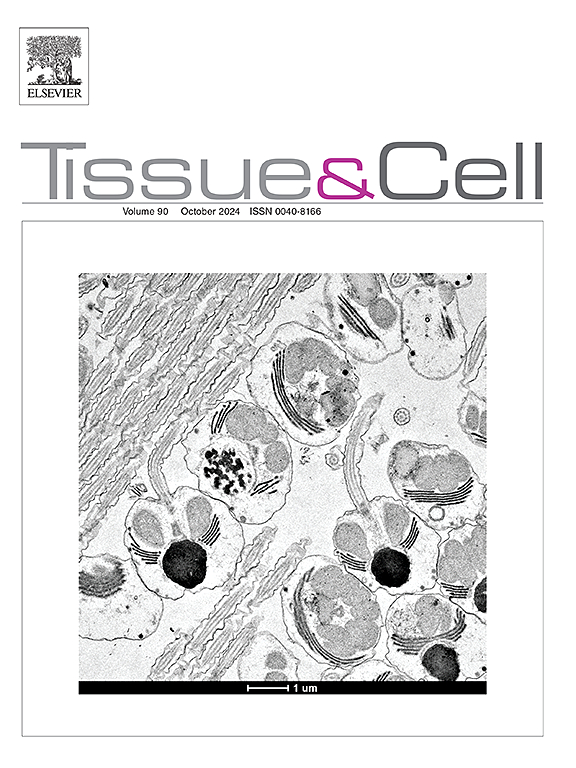Bavachinin attenuates cerebral ischemia/reperfusion injury in rats via its anti-inflammatory and antioxidant effects
IF 2.7
4区 生物学
Q1 ANATOMY & MORPHOLOGY
引用次数: 0
Abstract
Cerebral ischemia is associated with memory deficits. Bavachinin, a natural flavonoid derived from Psoralea Corylifolia seeds, exhibits various pharmacological properties, including anti-inflammatory, antioxidant, anticancer, and anti-allergic activities. We looked into the neuroprotective effects of bavachinin on rats' memory impairments brought on by transient cerebral ischemia/reperfusion. Blocked carotid arteries caused transient cerebral ischemia/reperfusion injury. Wistar male rats were randomized to bavachinin, ischemia/reperfusion, and sham groups. After surgery, bavachinin (100 mg/kg) was injected intraperitoneally once a day for seven days. Spatial memory was evaluated using the Morris water maze test. The vitality of the hippocampal pyramidal neurons was assessed by Nissl staining. The production of pro-inflammatory cytokines (TNF-α and IL-1β) has been detected using ELISA. Oxidative stress was evaluated by determining the hippocampal levels of malondialdehyde (MDA). In rats with transient cerebral ischemia/reperfusion, bevacichinin markedly improved the performance of learning. The bavachinin-treated group had a higher number of surviving pyramidal neurons, as demonstrated by the Nissl staining. In the hippocampus, bevacichinin lowered MDA, TNF-α, and IL-1β levels. The antioxidant and anti-inflammatory properties of bavachinin likely protect against memory impairment caused by transient cerebral ischemia. These findings suggest that bavachinin could be a potent therapeutic agent for the prevention of cognitive deficits and neuronal damage associated with cerebral ischemia/reperfusion. More studies are needed to explore its clinical applications and mechanisms of action.
求助全文
约1分钟内获得全文
求助全文
来源期刊

Tissue & cell
医学-解剖学与形态学
CiteScore
3.90
自引率
0.00%
发文量
234
期刊介绍:
Tissue and Cell is devoted to original research on the organization of cells, subcellular and extracellular components at all levels, including the grouping and interrelations of cells in tissues and organs. The journal encourages submission of ultrastructural studies that provide novel insights into structure, function and physiology of cells and tissues, in health and disease. Bioengineering and stem cells studies focused on the description of morphological and/or histological data are also welcomed.
Studies investigating the effect of compounds and/or substances on structure of cells and tissues are generally outside the scope of this journal. For consideration, studies should contain a clear rationale on the use of (a) given substance(s), have a compelling morphological and structural focus and present novel incremental findings from previous literature.
 求助内容:
求助内容: 应助结果提醒方式:
应助结果提醒方式:


